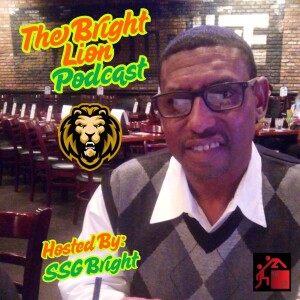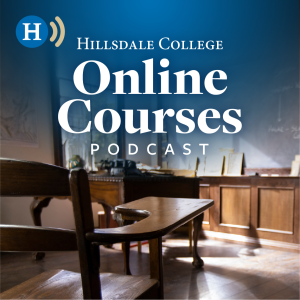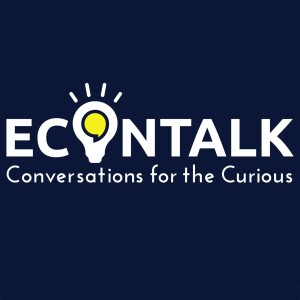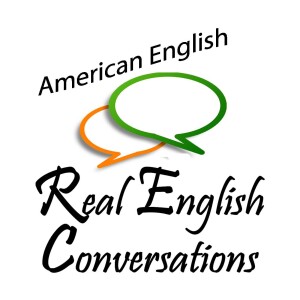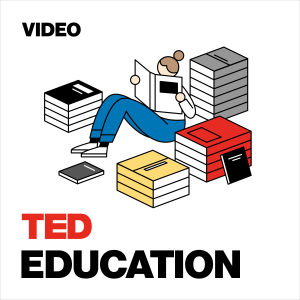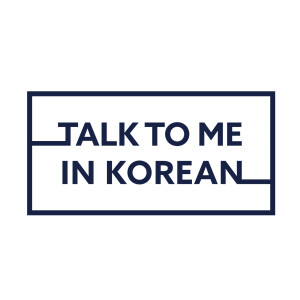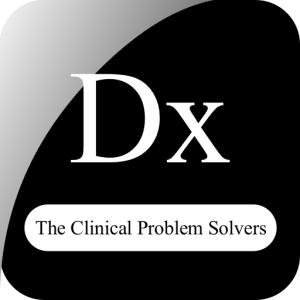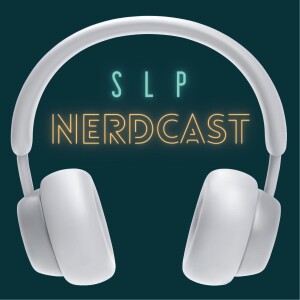

Episode List

Episode Zero: About & FAQ
You asked, and we listened. Tune into this episode to have (hopefully) all of your questions answered about who we are, what this show is about, our process, and continuing education. We review our professional work history and interests, what this show is about and how it was born, and how you can use this podcast for ASHA CEUs. We hope this episode gives you some answers, but if not please email us anytime! We love hearing from our listeners. Give it a listen, be our nerdy friend, and then enjoy an episode for credit. Thank you for being a listener and supporter of SLP Nerdcast!__SLP Nerdcast is a podcast for busy SLPs and teachers who need ASHA continuing education credits, CMHs, or professional development. We do the reading so you don’t have to! Leave us a review if you feel so inclined!We love hearing from our listeners. Email us at info@slpnerdcast.com anytime! You can also:Follow us on instagramFollow us on facebookWe are thrilled to be listed in the Top 25 SLP Podcasts! Thank you FeedSpot!

Collaborating with BCBAs
UPDATE: This episode was recorded and published with an error (@ timestamp 6:35). INTERprofessional collaboration is collaboration between different fields or professions (example: an SLP collaborating with a BCBA). INTRAprofessional collaboration is collaboration within one field (example: an SLPs collaborating with other SLPs). In our recording we swapped the two - blame it on first episode jitters!A BIG THANKS to our listener who brought this to our attention! You know who you are!!___Get .1 ASHA CEU hereWelcome to our first post! This podcast was a big one for us in so many ways! Since we are just a couple of nerds, who are also friends, and actually do spend an inordinate amount of time talking about “nerdy speech and language things” in our free time - the idea of being a bit more structured in our topics and recording our conversations for others to hear was an idea we threw around for a while. It became our brain baby. We were nervcited* about it. And now it is real.Why start our podcasting journey here? Collaborating with BCBAs has been an ongoing thread running through both of our careers in speech language pathology. BCBA/SLP relationships can be a polarizing topic on both sides of the office/school/clinic. We’ve personally had some great experiences, and some not so great ones. We both went through a post-graduate certificate program to become BCBAs (Kate took the exam and has the letters to prove it). We’ve both been challenged with difficult collaborative situations, and we’ve been on the sidelines to see the challenges experienced by our colleagues in their working relationships with others.So why collaborate in the first place? Well, to begin with it’s the ethical choice. Our ASHA code of ethics is long, but there are some clear points made as to why it is ethical to collaborate. Plus, the field of ABA sometimes gets a bad rep - BCBAs and the field of ABA in general can have a lot to offer. We have both found it to be a great compliment to our speech therapy practices. Unfortunately, sometimes collaborating is a hard road, for a variety of reasons, and most of us don’t receive any type of explicit training on this in graduate school. How do we navigate these relationships as a professional? Do we even have to? Is it worth all the potential hassle? In this podcast we will talk in depth about the why and the how of intraprofessional collaboration with BCBAs. Spoiler alert: We’ve both had the good fortune of some wonderful shared clinical experiences with BCBAs - and we really think it is an experience worth figuring out!Come join us, be our nerdy friend, listen, learn, and earn ASHA CMHs (other providers check with your credentialing organization to find out if our quiz and certificate of participation counts toward the professional development requirements for your license, email us with any questions!).*Nervcited - a word we are pretty sure we invented. It's that weird combination of simultaneously feeling nervous and excited about something.ASHA Professional Development hours are offered for this course (1 certification maintenance hour). Visit our ASHA Professional Development page for more information .Learning Outcomes1. Provide at least 3 descriptive facts about applied behavior analysis2. Describe at least 2 reasons to collaborate with behaviorally oriented professionals3. Identify at least 2 barriers to collaborating4. Identify at least 2 strategies for effective collaboration.ReferencesCooper, J. O., heron, T. E., & Heward, W. L. (2007). Applied Behavior Analysis (2nd Ed.) New York, NY: PearsonDonaldson, A. L. & Stahmer, A. C. (2014). Team Collaboration: The Use of Behavior Principles for Serving Students with ASD. Language, Speech, and Hearing Services in Schools, 45, 261–276Stone, Douglas., Bruce Patton, and Sheila Heen. Difficult Conversations: How to Discuss What Matters Most. New York, N.Y.: Viking, 1999Online ResourcesBehavior Analyst Certification BoardASHA Guidelines for Caseload and WorkloadDisclosures:Financial: Kate Grandbois is the owner / founder of Grandbois Therapy + Consulting, LLC and co-founder of SLP Nerdcast. Amy Wonkka is an employee of a public school system and co-founder of SLP Nerdcast.Non-financial: Kate and Amy are both members of ASHA, SIG 12, and both serve on the AAC Advisory Group for Massachusetts Advocates for Children. Kate is a member of the Berkshire Association for Behavior Analysis and Therapy (BABAT), MassABA, the Association for Behavior Analysis International (ABAI) and the corresponding Speech Pathology and Applied Behavior Analysis SIG.Time Ordered Agenda:10 minutes: Introduction, Disclaimers and Disclosures20 minutes: Descriptions of the science of applied behavior analysis15 minutes: Descriptions of the responsibilities to collaborate and the identified barriers to collaboration10 minutes: Describe the strategies to improved collaborative practices5 minutes: Summary and ClosingDisclaimerThe contents of this episode are not meant to replace clinical advice. SLP Nerdcast, its hosts and guests do not represent or endorse specific products or procedures mentioned during our episodes unless otherwise stated. We are NOT PhDs, but we do research our material. We do our best to provide a thorough review and fair representation of each topic that we tackle. That being said, it is always likely that there is an article we’ve missed, or another perspective that isn’t shared. If you have something to add to the conversation, please email us! Wed love to hear from you!___SLP Nerdcast is a podcast for busy SLPs and teachers who need ASHA continuing education credits, CMHs, or professional development. We do the reading so you don’t have to! Leave us a review if you feel so inclined!We love hearing from our listeners. Email us at info@slpnerdcast.com anytime! You can find our complaint policy here. You can also:Follow us on instagramFollow us on facebookWe are thrilled to be listed in the Top 25 SLP Podcasts! Thank you FeedSpot!

Aided Language Modeling
Get .1 ASHA CEU hereAided modeling interventions are becoming a common recommendation in the field of AAC. You hear about it at conferences, you see it posted on social media, it’s listed on popular reference websites. It’s kind of a hot topic.But - what is it exactly? Is it called aided language stimulation, aided language modeling, or aided language input? With everyone calling it different things and doing it in different ways it’s hard to tell if you are doing it correctly.Plus, a lot of the references out there on social media and blog posts don’t review the literature. Fortunately there is a lot of literature out there, but there is a lot of variation. In this episode we review several articles and meta-analyses to get a feel for the overall evidence out there. We also discuss what evidence we have in the literature support its use and how we can apply it effectively with our clients / students / patients. ASHA Professional Development hours are offered for this course (1 certification maintenance hour). Visit our ASHA Professional Development page for more information .Learning Outcomes1. Review and define aided language modeling2. Review at least two descriptions of aided language modeling in literature3. Describe at least 2 implementation procedures for aided language modeling4. Describe at least 2 things to consider when using aided language modeling as an intervention strategyReferencesThis episode has a substantial reference list. Available as a free download here.Online ResourcesASHA Practice Portal on AAC:https://www.asha.org/Practice-Portal/Professional-Issues/Augmentative-and-Alternative-Communication/ASHA Resources on Evidence Based Practicehttps://www.asha.org/research/ebp/evidence-based-practice/Disclosures:Financial: Kate Grandbois is the owner / founder of Grandbois Therapy + Consulting, LLC and co-founder of SLP Nerdcast. Amy Wonkka is an employee of a public school system and co-founder of SLP Nerdcast.Non-financial: Kate and Amy are both members of ASHA, SIG 12, and both serve on the AAC Advisory Group for Massachusetts Advocates for Children. Kate is a member of the Berkshire Association for Behavior Analysis and Therapy (BABAT), MassABA, the Association for Behavior Analysis International (ABAI) and the corresponding Speech Pathology and Applied Behavior Analysis SIG.Time Ordered Agenda:10 minutes: Introduction, Disclaimers and Disclosures20 minutes: Review of the definition of aided language modeling and supporting descriptions in literature15 minutes: Review of different implementation procedures in aided language modeling10 minutes: Review considerations for using aided language modeling as an intervention strategy5 minutes: Summary and ClosingDisclaimerThe contents of this episode are not meant to replace clinical advice. SLP Nerdcast, its hosts and guests do not represent or endorse specific products or procedures mentioned during our episodes unless otherwise stated. We are NOT PhDs, but we do research our material. We do our best to provide a thorough review and fair representation of each topic that we tackle. That being said, it is always likely that there is an article we’ve missed, or another perspective that isn’t shared. If you have something to add to the conversation, please email us! Wed love to hear from you!__SLP Nerdcast is a podcast for busy SLPs and teachers who need ASHA continuing education credits, CMHs, or professional development. We do the reading so you don’t have to! Leave us a review if you feel so inclined!We love hearing from our listeners. Email us at info@slpnerdcast.com anytime! You can find our complaint policy here. You can also:Follow us on instagramFollow us on facebookWe are thrilled to be listed in the Top 25 SLP Podcasts! Thank you FeedSpot!

Data Collection
Get .1 ASHA CEU hereWow. Data collection. Qualitative. Quantitative. Frequency. Latency. Validity. Accuracy.Super exciting topic - no really! We know speech language pathology is an evidence-based practice, but we don’t get tons of training in different types of data collection methods or how to optimize our data collection for our work environment. We found some great articles when we were preparing for this podcast, and we are excited to share them with you.In this episode we hope to get you as excited about data as we are! Learn about why we should even collect data in the first place, and what are the important components that make data “good”. Find out some questions you should ask yourself when thinking about what data you’ll collect and how you’ll do it - including whether you should consider your data collection methods when writing goals and objectives. Finally, we’ll troubleshoot some potential data-collection pitfalls and give tips about how to avoid data that is inaccurate, cumbersome, or even impossible to take.Come and hang out, be our nerdy friend, listen, learn, and earn ASHA CMHs (other providers check with your credentialing organization to find out if our quiz and certificate of participation counts toward the professional development requirements for your license, email us with any questions!). Get as excited as we are about data collection and watch your relationship with this clinical skill change for the better!ASHA Professional Development hours are offered for this course (1 certification maintenance hour). Visit our ASHA Professional Development page for more information .Learning Outcomes1. Identify at least 2 reasons to take data and describe at least 2 components to consider when taking data?2. Identify at least 2 hurdles to collecting data3. Identify at least 2 strategies to overcoming hurdles to data collection4. Identify at least 2 kinds of data collection and situations they are best suited toReferencesKorsten, J. (2002). Meaningful data: Making sense of + and -. Perspectives on Augmentative and Alternative Communication, 11(3), 10-13Olswang, L. B. & Bain, B. (1994). Monitoring children’s treatment progress. American Journal of Speech-Language Pathology, 3(3), 55-66Walz, J. (2013). Technology to support data collection and management in the public schools. Perspectives on School-Based Issues, 14(1), 10-14Disclosures:Financial: Kate Grandbois is the owner / founder of Grandbois Therapy + Consulting, LLC and co-founder of SLP Nerdcast. Amy Wonkka is an employee of a public school system and co-founder of SLP Nerdcast.Non-financial: Kate and Amy are both members of ASHA, SIG 12, and both serve on the AAC Advisory Group for Massachusetts Advocates for Children. Kate is a member of the Berkshire Association for Behavior Analysis and Therapy (BABAT), MassABA, the Association for Behavior Analysis International (ABAI) and the corresponding Speech Pathology and Applied Behavior Analysis SIG.Time Ordered Agenda:10 minutes: Introduction, Disclaimers and Disclosures20 minutes: Descriptions of reasons for data collection and hurdles to data collection15 minutes: Descriptions of the strategies for overcoming hurdles to data collection10 minutes: Describe of different kinds of data collection and situations in which they may be appropriate5 minutes: Summary and ClosingDisclaimerThe contents of this episode are not meant to replace clinical advice. SLP Nerdcast, its hosts and guests do not represent or endorse specific products or procedures mentioned during our episodes unless otherwise stated. We are NOT PhDs, but we do research our material. We do our best to provide a thorough review and fair representation of each topic that we tackle. That being said, it is always likely that there is an article we’ve missed, or another perspective that isn’t shared. If you have something to add to the conversation, please email us! Wed love to hear from you!__SLP Nerdcast is a podcast for busy SLPs and teachers who need ASHA continuing education credits, CMHs, or professional development. We do the reading so you don’t have to! Leave us a review if you feel so inclined!We love hearing from our listeners. Email us at info@slpnerdcast.com anytime! You can find our complaint policy here. You can also:Follow us on instagramFollow us on facebookWe are thrilled to be listed in the Top 25 SLP Podcasts! Thank you FeedSpot!

Setting up a Private Practice Part 1: Liability and Financial Considerations
Get .1 ASHA CEU hereStarting a private practice can be exciting - but also daunting, intimidating, or for some of us outright terrifying. There is a certain vulnerability in putting yourself out there. This vulnerability extends way beyond whether or not you are making the right clinical decisions out on your own. There are often concerns about liability, budgeting, taxes and money management, overhead costs, policies, regulations → mind explosion.First off, we want everyone interested in private practice to know that it is totally possible. A bajillion people go into business for themselves. Just because we don’t get business management training as part of our degree does not make us less equipped to go into business for ourselves. There are so many resources out there. Taking advice from a seasoned business owner is just the start. Our goal for this episode is to help you start that journey, get you hooked into some good resources out there, and answer some of these long standing questions related to risk, liability, and finances.Disclaimer: We are not attorneys or accountants. The information provided in this episode comes from personal experience owning and running a private practice for the last 10 years. We always defer to the experts for legal and accounting / financial advice. While you can always reach out to use with questions, we recommend you find some good local resources for specific issues!ASHA Professional Development hours are offered for this course (1 certification maintenance hour). Visit our ASHA Professional Development page for more information .Learning OutcomesIdentify at least 2 common legal / liability considerations when setting up a private practiceIdentify at least 2 common financial considerations when setting up a private practiceIdentify 2 of the most frequent revenue streams in private practice and considerations for eachReferencesCornett, B. S. (2006). Clinical documentation in speech-language pathology: Essential information for successful practice. ASHA Leader, 11(12), 8-25Online ResourcesMalpractice Insurance ResourcesMercer Consumer (Formerly MARSH)Healthcare Providers Service Organization (HPSO)Corporate Filing ResourcesBizfilings (information about different corporate structures)MyCorporation: Everything you need to know:HIPAA Compliance ResourcesASHA and HIPAAGeneral HIPAA informationTax ID and NPI ResourcesLink to apply for an EINNational pan and Provider Enumeration System (NPPES; apply for / look up your NPI number)Centers for Medicare and Medicaid information about NPI numbersTax ResourcesLearn more about self employment taxHealth Insurance and Superbill ResourcesASHA superbill templatesASHA CPT codesASHA ICD-10 codesDisclosures:Financial: Kate Grandbois is the owner / founder of Grandbois Therapy + Consulting, LLC and co-founder of SLP Nerdcast. Amy Wonkka is an employee of a public school system and co-founder of SLP Nerdcast.Non-financial: Kate and Amy are both members of ASHA, SIG 12, and both serve on the AAC Advisory Group for Massachusetts Advocates for Children. Kate is a member of the Berkshire Association for Behavior Analysis and Therapy (BABAT), MassABA, the Association for Behavior Analysis International (ABAI) and the corresponding Speech Pathology and Applied Behavior Analysis SIG.Time Ordered Agenda:10 minutes: Introduction, Disclaimers and Disclosures20 minutes: Descriptions of common legal considerations in private practice15 minutes: Descriptions of common financial considerations in private practice10 minutes: Descriptions of common revenue streams in private practice5 minutes: Summary and ClosingDisclaimerThe contents of this episode are not meant to replace clinical advice. SLP Nerdcast, its hosts and guests do not represent or endorse specific products or procedures mentioned during our episodes unless otherwise stated. We are NOT PhDs, but we do research our material. We do our best to provide a thorough review and fair representation of each topic that we tackle. That being said, it is always likely that there is an article we’ve missed, or another perspective that isn’t shared. If you have something to add to the conversation, please email us! Wed love to hear from you!__SLP Nerdcast is a podcast for busy SLPs and teachers who need ASHA continuing education credits, CMHs, or professional development. We do the reading so you don’t have to! Leave us a review if you feel so inclined!We love hearing from our listeners. Email us at info@slpnerdcast.com anytime! You can find our complaint policy here. You can also:Follow us on instagramFollow us on facebookWe are thrilled to be listed in the Top 25 SLP Podcasts! Thank you FeedSpot!
You may also like
Create Your Podcast In Minutes
- Full-featured podcast site
- Unlimited storage and bandwidth
- Comprehensive podcast stats
- Distribute to Apple Podcasts, Spotify, and more
- Make money with your podcast
